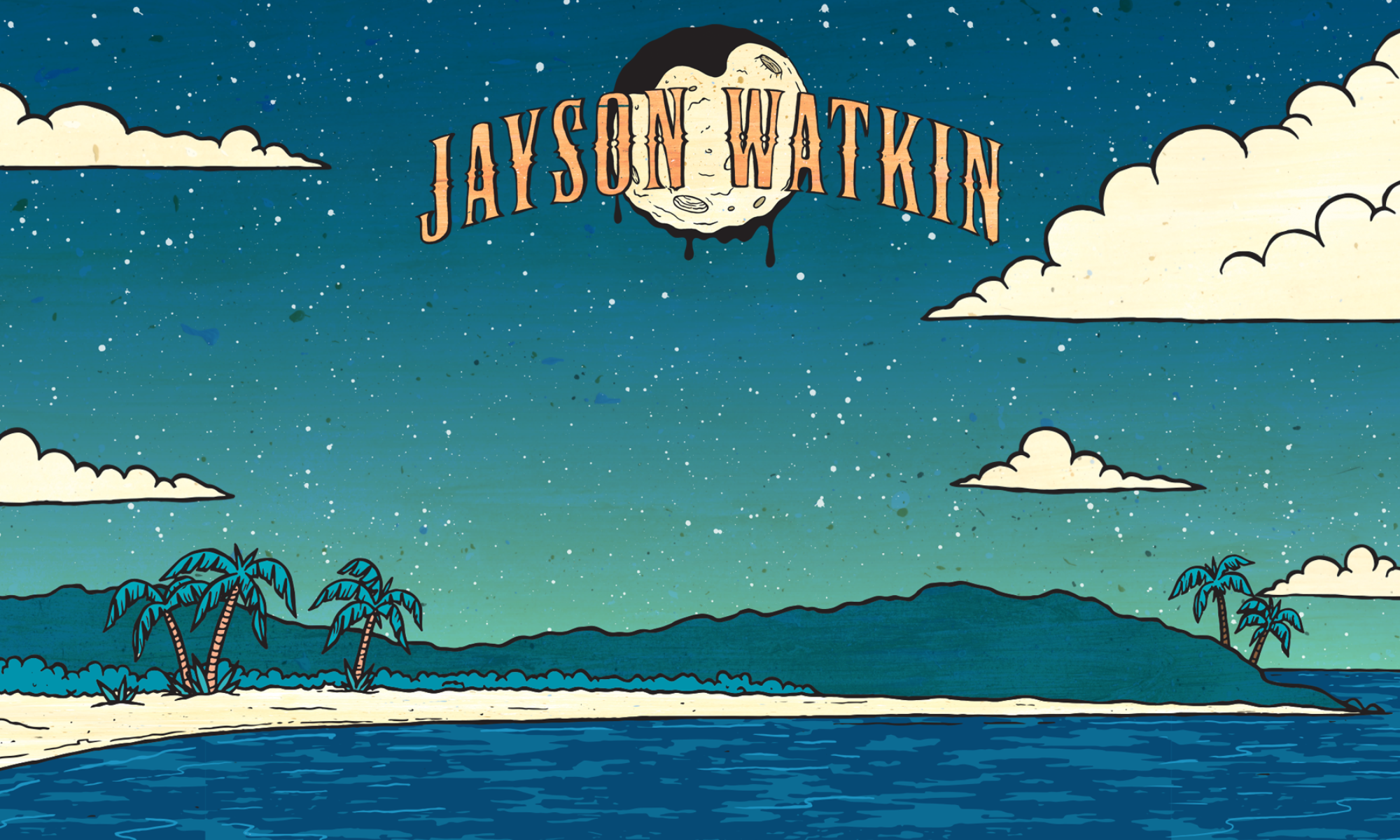The saying “life is a rollercoaster” has been long held as a universal truth. It’s not hard to see why. Some of us hold on for dear life, while others jump the tracks. The stretch of rail beneath Australian songwriter Jayson Watkin has taken some intriguing turns over the past seven years.
The Far North Queensland native released an acclaimed debut record in 2009 that brought him a hard-earned taste of success. However, he was unable to ride the wave and Watkin soon found himself on a journey of self sabotage, plummeting him into heartbreak. These slings and arrows are laid bare on the new record, Lifeboat.
Watkin’s first album, Rain of Mercy, spawned a hit single, ‘Jacky Kneebone’, and announced him as a songwriter that demanded attention. With little effort, over 5000 copies found their way into Australian homes and Watkin held the number one spot on Brisbane’s 98.9FM All Australian Top 20 for six weeks, collected a coveted Qsong award and received a nomination for male vocalist of the year at the Queensland Country Music Awards.
Almost as if a prerequisite to emotive songwriting, Watkin’s demons conspired to send him into a spiral of despair and intoxication as a result of a relationship breakdown. He found solace while working on a fence line on Cape York Peninsula, and then packed his bags for foreign shores. Through the turmoil, he continued to write and perform. Music was his “lifeboat”. Watkin believes that such experiences are crucial to his music’s unwavering authenticity.
“I think the greatest ingredient for being a songwriter of substance is to live a life of diversity,” Watkin says. “You can’t write a song about a night sky on the Barkly Tableland if you’ve never seen one, or about the virtues of a hard day’s work if you’ve never done one, or the crushing pain and gut churning anguish of a broken heart if you’ve never had one. Like I say, it’s easy to write about something when you’ve lived it.”
Watkin wrote a fresh swag of songs, documents of pain and expanded wisdom, and went about making his anticipated second album.
Chasing country twang, he went to the hallowed rooms of Nashville’s Blackbird studios. There, he felt elevated to a whole new level of musicianship, with the guys at Blackbird eminating the professionalism and history that Nashville has to offer. However, feeling still emotionally displaced, being too far from home was unnerving. This sent him back to Australia, and he found himself at Vibetone Recording Studio on the Sunshine Coast hinterland.
“I’m a Luke O’Shea fan so I copped a feel of his new album and it felt really good,” Watkin says. “He [Luke], introduced me to Benjy Pocock (Lifeboat co-producer), and we made an instant connection. Vibetone is a utopia for musicians and seriously lives up to its name. When we started the album, I pretty much wanted the Blackbird recording to be the benchmark as it seemed to tick all the sonic boxes, but I’m happy to say we raised the bar on several occasions.”
Adding to the personal hardship of Watkin’s journey was a lack of confidence. He was plagued by the idea that he couldn’t ever rekindle the spark of creativity that lead to Rain of Mercy.
“I think I was daunted by the quality of my first album,” Watkin explains. “From both a songwriting and production perspective. As a result I lived in it’s shadow for a while, trying to convince myself that I was up to the task of promoting it and then following it up with something comparable. When you use your life as your subject matter, songwriting can be an extremely daunting profession and unless you have a considerable amount of ego, you are susceptible to the vulnerability of baring your soul. While I never stopped performing and writing, it certainly took some time for me to realise I was as good as my album.”
If the assured songwriting and undeniable quality of Lifeboat is anything to go by, Watkin has not only rediscovered the magic – he’s found a way to surpass it.
